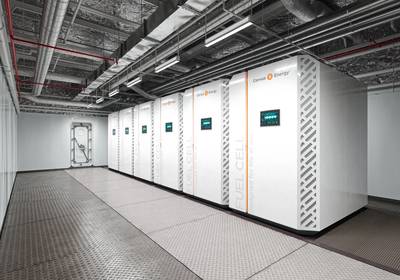Corvus Unveils Pelican Fuel Cell System
Corvus Energy has launched its inherently gas-safe marine fuel cell product, the Corvus Pelican Fuel Cell System.
The system is the result of the H2NOR research project that started in 2021. H2NOR was initiated by Corvus Energy, Toyota and other partners to fast-track the development and production of sustainable and scalable Maritime Hydrogen Fuel Cell Systems.
Corvus says the result of the two-year development is the safest marine fuel cell system to date. Using the well-proven fuel cell technology from Toyota, used in more than 20,000 cars, and adding the safety level needed for marine, enables the Pelican FCS to be installed anywhere onboard a vessel.
The modular and flexible system is designed to be Inherently Gas Safe, meaning that the surrounding machinery space is considered gas safe under all conditions. This significantly reduces the requirements of safety support systems and ventilation, thereby enabling more efficient integration of the system inside the ship’s hull.
Geir Bjørkeli, CEO of Corvus Energy, explains: “Our mission is to power a clean future, and through the years, we have been pioneers on a lot of different vessel types. However, batteries cannot take us all the way. If you want to sail zero-emission, you will need to bring clean energy in a different format. We strongly believe hydrogen is the natural choice for shorter and medium-distance routes as this is the most energy-efficient way. The safety level as well as the flexibility and modular design will revolutionize marine power going forward.”
Corvus Energy fuel cell systems can be combined with Corvus Energy batteries to form a hybrid power system. Energy Storage Systems handle load variations, and fuel cell systems perform best at stable loads. Corvus Energy is now developing CoPilot, an application for fuel cell and battery systems, supporting system integrators to optimally distribute power between fuel cell systems and batteries.














